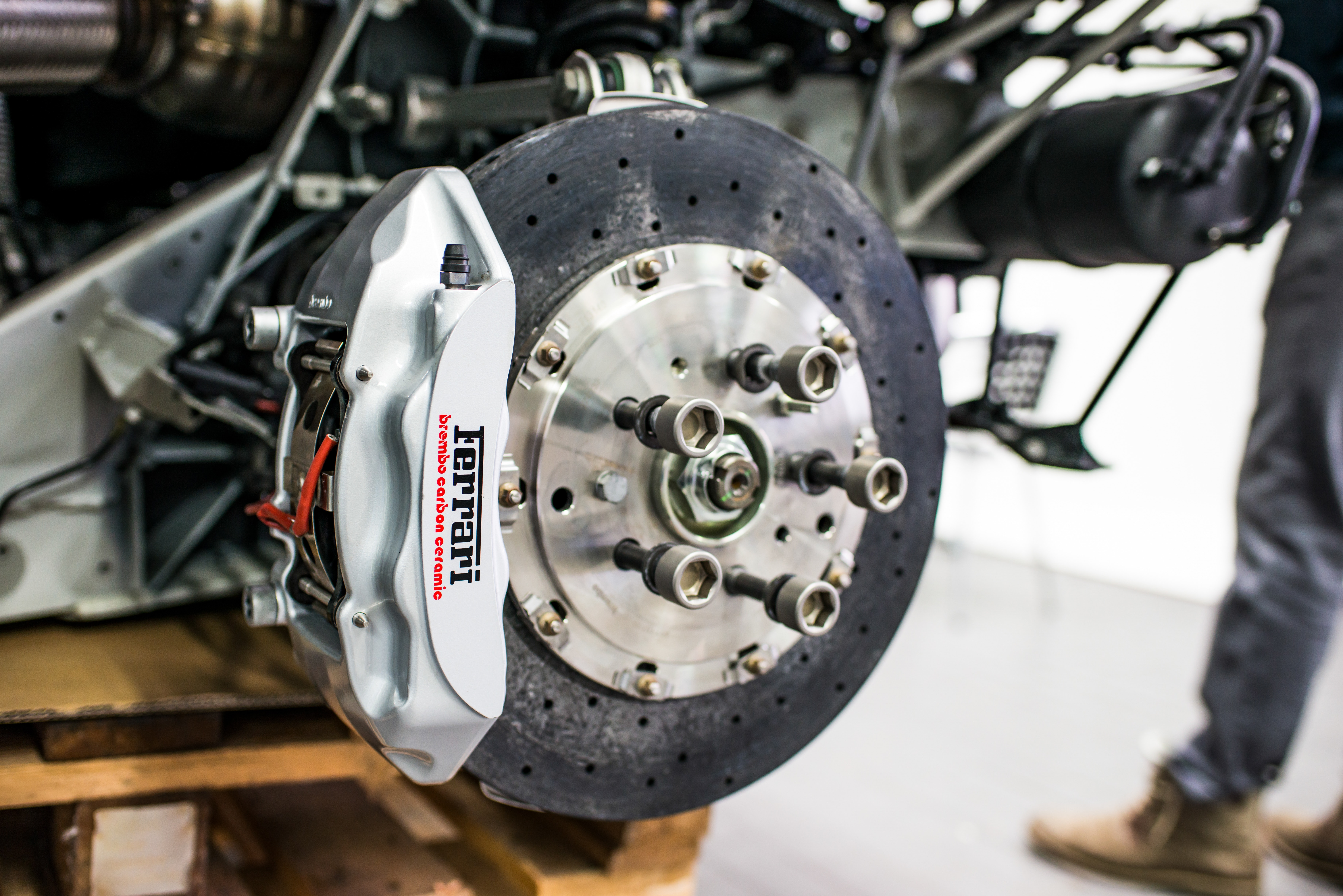
As the most pertinent safety feature on your car, it is important to care and have a working understanding about your car's brakes. Master Tech has take some time to answer some of the more popular brake questions that we hear.
Typically, brake pads should be changed every 50,000 miles. However, this number can vary based on a few different factors. The quality of the brakes, the environment they are being driven in, and the habits of the driver can all influence how long your brake pads last. Make sure to have your mechanic check your brake pads during routine maintenance to ensure their quality and remaining miles.
Squeaking can be caused by several different things. If you are lucky, the squeaking is being caused by moisture and dirt that has built up on the rotors. This would mean that your brakes are still operational. However, squeaking can also be caused by pads that have worn too low, rotors that are losing their integrity or a myriad of other issues. Noise from your brakes needs to be checked immediately if it is frequent and last for more than a day.
When you hit the brakes, your car's weight shifts forward. For this reason, the front brakes are the ones that do the majority of the work. Cars are typically equipped with disc brakes in the front to ensure they can handle this extra braking pressure. Drum brakes are typically found on the rear of the vehicle.
Brakes require the fluid that is pushed through your brake lines in order to work. This is why it is key to always check your brake fluid level. Also, if you ever replace brake pads on your own, try not to interferre with the brake lines. Once fluid is released from the brake lines, the system will need to be bled before you can add fluid back into the system. If you were to lose brake fluid while repairing your brakes, and simply add it back in through the brake fluid resevoir, you could be introducing air into the brake lines. This could cause your brakes to fail the next time you have to brake hard. Bleeding and refilling a brake line system is difficult to do without the proper tools, so be sure to leave this to the professionals.
The rigidity of your brake pedal is directly linked to the brake lines and fluid levels in them. If there is air in your brake lines, or if the fluid level is low, it could cause your brake pedal to fall closer to the floor before the brakes actually engage. This is not a problem that should be taken lightly. Consider this a warning sign that your brakes may be on their way to failure.
Vibrating brakes are typically caused by rotors that are warpped. Rotors can become warpped if they are old, if you have a tendency of braking heavily, or if they become overheated. All of these conditions will cause the rotors to no longer be perfectly flat, and when your pads press against them, it will cause a shuttering effect. While your car can still brake with warpped rotors, it will have an effect on the length that it takes for your vehicle to stop. Try to get warpped rotors repaired right away.
If you are experiencing any of the issues listed above, reach out and contact us for an appointment. We would be happy to help.